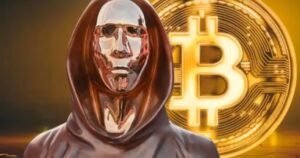Ripple’s Chief Technology Officer, David Schwartz, has reignited a fundamental debate in the crypto world: who truly counts as the “issuer” of a digital asset? In a recent discussion, Schwartz suggested that Satoshi Nakamoto, the enigmatic creator of Bitcoin, could be considered the original issuer of the world’s first cryptocurrency. This perspective challenges traditional definitions and could have far-reaching implications for how regulators and the industry view the origins of digital assets .
Rethinking the “Issuer” in Crypto
Schwartz’s comments come amid ongoing scrutiny of Ripple’s relationship with XRP and whether the company should be seen as its issuer. He argued that Satoshi’s early role—launching the Bitcoin network and mining its first blocks—makes a strong case for viewing him as Bitcoin’s initial issuer. This is a notable shift from the common view that an issuer is simply the entity that creates a token .
For comparison, Schwartz pointed out that Ethereum had a clearly defined issuer during its presale, while XRP’s launch was far less conventional. At its inception, XRP had no established trading market and was, in Schwartz’s words, “literally worthless.” There was even uncertainty about whether the XRP Ledger would survive its early days .
A Broader Definition: Ecosystem Over Entity
Schwartz proposes expanding the definition of “issuer” beyond the creator. He suggests that those who build and support the financial infrastructure—such as exchanges and ecosystem participants—also play a crucial role. This broader view shifts the focus from Ripple as the sole originator of XRP to the wider network that enables its trading and utility .
“If one defines the term ‘issuer’ narrowly (as in ‘who created the token?’), some might say Ripple could be considered the token’s issuer. However, if one applies a broader definition, the company’s role becomes substantially smaller.”
Speculation and Identity: Could Schwartz Be Satoshi?
The debate has also fueled speculation about Schwartz’s own history in crypto. Some in the community have theorized that he could be Satoshi Nakamoto. Schwartz has firmly denied these claims, clarifying that he only learned about Bitcoin in 2011, well after its launch . Despite the rumors, he maintains that his involvement began years after Satoshi’s last known activity.
Why This Matters for Crypto Regulation
As the crypto industry matures, clear definitions around terms like “issuer” are becoming increasingly important for both compliance and investor understanding. Schwartz’s comments highlight the need for nuanced perspectives as digital assets evolve and regulatory frameworks catch up.





